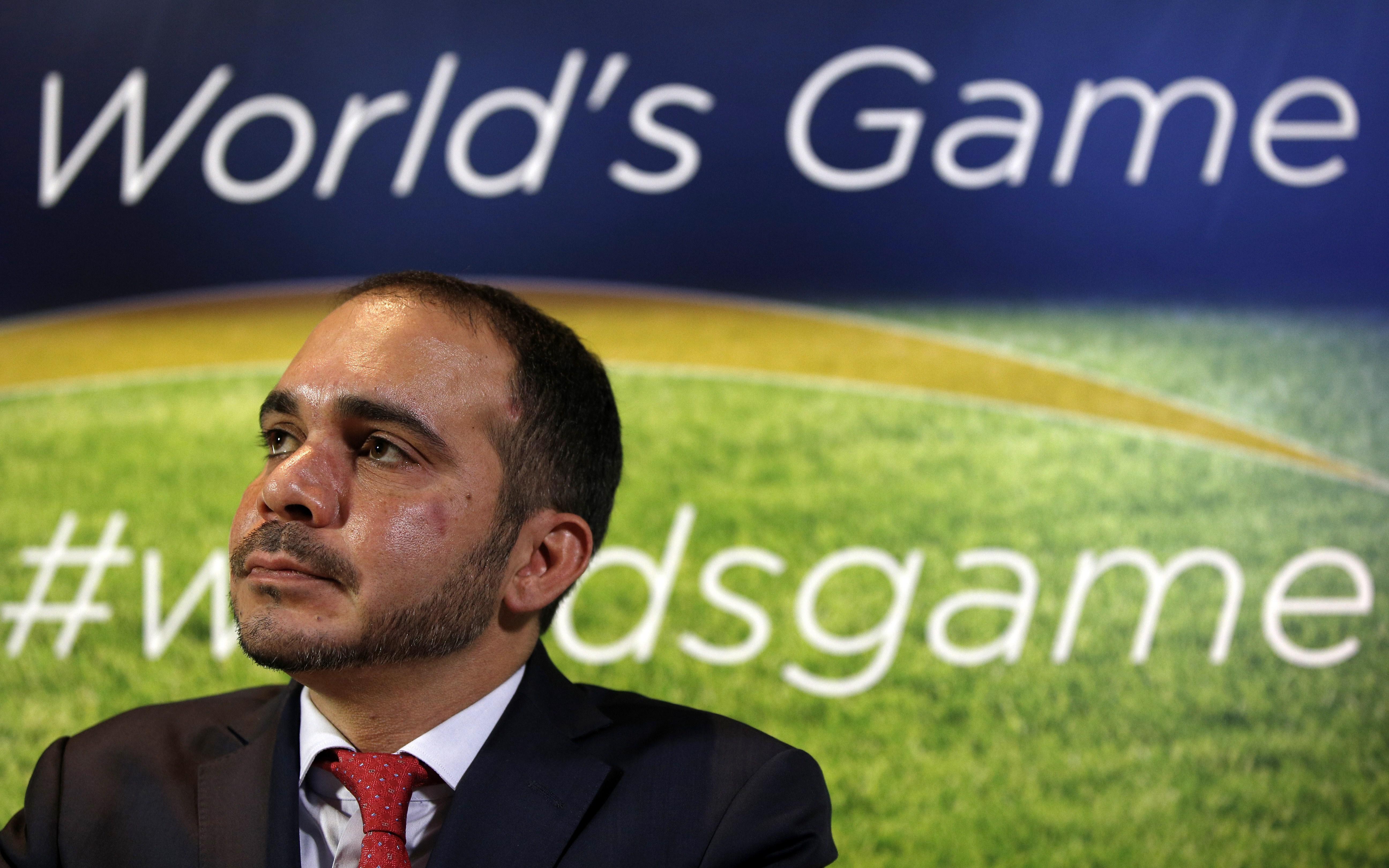Many soccer fans are hoping tonight that an actual prince will come to their rescue tomorrow. Right now, Prince Ali Bin al-Hussein, younger brother of King Abdullah II of Jordan, is the only man standing between the world’s most popular sport and another four years of Sepp Blatter.
Blatter was supposed to cruise to his fifth term in Friday’s vote by FIFA’s 209 members, but with the arrests of several senior officials Wednesday and the promise of more criminal investigations—perhaps implicating Blatter himself—things have gotten a little more interesting. As it happens, the only man running against Blatter is Prince Ali. Several other candidates, including retired Portuguese star Luis Figo, have dropped out to support Ali. The prince also has the backing of several regional bodies, such as Europe’s powerful federation UEFA. Blatter is still expected to win: He has heavy backing among the African and Asian members, but given how his week has been going, it’s no longer a foregone conclusion.
So who is the prince who wants to save the world’s most popular support? The 40-year-old Ali, the third son of Jordan’s late King Hussein, has had the meteoric rise that king’s sons get to have. He became the head of the Jordan Football Association at age 24—“the same age as most of the players,” he noted—and became the youngest member of FIFA’s executive committee in 2011. He was one of the founders of the West Asian Football Federation, and his best-known initiative was getting FIFA to lift a ban on female players wearing hijabs. He’s also an officer in the Jordanian military, and he accompanied his brother to meet with the family of Moaz al-Kasasbeh, the Jordanian pilot tortured and killed by ISIS this year.
Unlike Blatter, Ali certainly seems to be able to charm the media. According to a fawning Reuters profile from January, the prince is “one of the few FIFA executive committee members who might slip into a pair of jeans, pull on a leather jacket and go and watch his favorites Arsenal in London or eat at a modest restaurant and feel completely at home.”
As for how he would run FIFA, Ali certainly says all the right things. Earlier this week, he went public after claiming his election team had been approached by someone promising to deliver votes and deliver illegally obtained information about Blatter’s finances. He says he rejected the “criminal approach.” In March, he told the New York Times that he wants to increase the amount of revenue returned to countries for athletic development, rather than lining the organization’s own coffers. He has also promised to make the still-confidential internal report into the awarding of the Word Cups to Qatar in Russia to be made public. Criticizing Blatter’s autocratic style, he has vowed to serve only one term and to delegate more of the office’s responsibilities, saying, “We want to get to a day when people don’t even know who the president of FIFA is.”
This all sounds great, even if some skepticism is warranted about whether Ali could deliver. But after 16 years of Blatter, most soccer fans, if not the people who will actually be voting tomorrow, would probably like to give him a shot.
